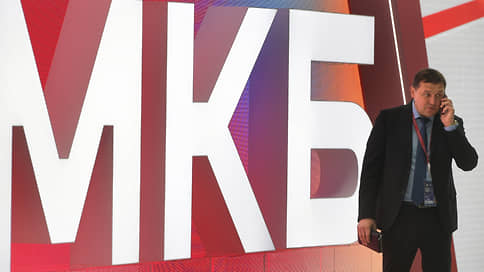Credit Bank of Moscow acquires Inkahran, one of the largest players in the collection services market
[ad_1]

Credit Bank of Moscow has decided to fully integrate its cash collection business by adding Inkahran, one of the largest market players. This is required to reduce business costs associated with expenses for a separate legal entity with a Central Bank license, in the face of reduced cash payments. Financial market participants confirm the drop in profitability of the collection business, which makes players look for options to increase profitability.
The Moscow Credit Bank (MCB) is going to join the non-bank credit organization (NCO) Inkahran, Kommersant was told at the bank. Now the NPO is 100% owned by the bank and is one of the three largest cash collection market operators.
The transformation of the cash collection business in the MKB is explained by a decrease in its profitability due to increased competition, a drop in cash payments in the economy and demand for money transportation, as well as the emergence of online cash collection.
Kommersant’s interlocutor close to the bank adds that in the format of a separate legal entity, this business is quite capital-intensive and is regulated almost like a separate bank, which requires large expenses. In his opinion, the merger will lead to savings both in the cost of compliance with mandatory standards and in the reduction of duplicative functions and staff. The legal procedure will be completed in the first half of 2024.
There are no official figures on the marginality of the collection business, but Kommersant’s interlocutors in the market say that the profitability has more than halved and the classic business is already “working on the verge of profitability.”
“When everything is good with profitability in some segment, new players appear there. New players have not appeared on the cash collection market for a long time, and even individual companies are leaving it. This, among other problems, indicates insufficient marginality, which has not improved at all over the past two years, and even, apparently, worsened, ”says Elena Melanich, head of the board of the Association of organizations in the field of cash circulation, collection and transportation of valuables. Two other key players – Sberbank and Rosinkas – did not respond to requests from Kommersant.
The largest participants in the cash collection market are Sberbank, Rosinkas (part of the Bank of Russia) and Inkahran. According to the latest available reports, Rosinkas received RUB 250.2 million in 2021. net loss. Inkakhran received a net loss of 34.7 million rubles in 2022. Sberbank does not disclose the indicators of the cash collection business.
MKB expects to improve business efficiency through the development of self-collection, including by offering customers to switch to online cash collection using automated deposit machines (ADMs). “At the moment we have about 4,000 such devices. We plan to more than double their number within a few years, ”the IBC explained. As Viktor Dostov, chairman of the Association of Participants in the Market of Electronic Money and Money Transfers, notes, “for example, the share of devices with the recycling function is growing, which reduces the need for collection.”
According to Ms. Melanich, at the beginning of 2022, about 30 thousand ADMs were used in Russia and about 60 thousand more recirculators (ATMs with the function of receiving and issuing money) that can be used for such services.
“Self-collection, if it is properly arranged, using, for example, ADM-machines, increases the manufacturability of the collection process and implies a reduction in costs in the future,” says Elena Melanich.
The financial market participant adds that self-collection “is suitable both for large businesses, where there are chain retailers, and in general for small and medium-sized businesses.”
At the same time, market participants note a drop in customer demand for cash collection services against the backdrop of an increase in non-cash turnover and non-cash payments. One of Kommersant’s interlocutors adds that the use of cash “is likely to reduce the digital ruble.” “In the next two years, the volume of the cash collection market (classic.— “b”) will decrease by 15–20%, and the decline will continue in the future,” the ICD agrees. As follows from the social survey of the Central Bank at the end of 2022 (published at the end of June 2023), 27% of citizens prefer to use cash when paying for goods and services. During the year, the share decreased by 6 percentage points.
[ad_2]
Source link





